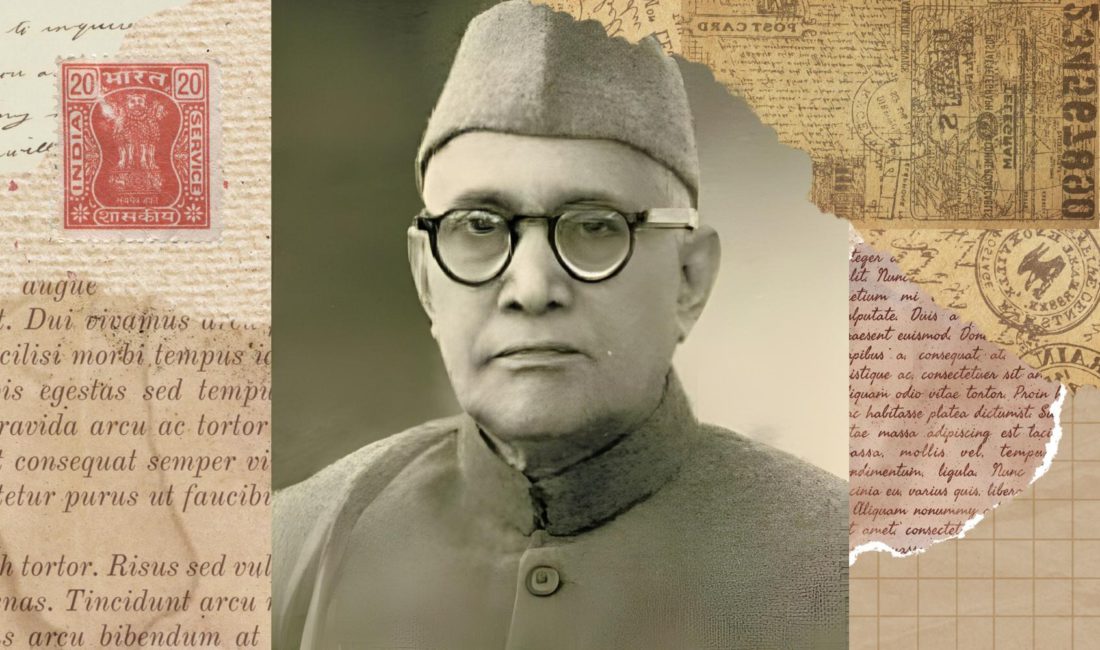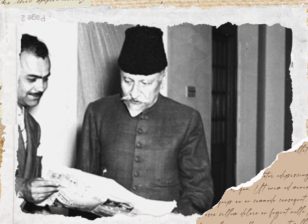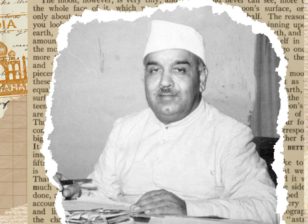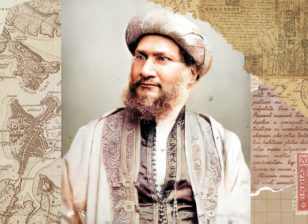Dr. Saifuddin Kitchlew: Champion of Freedom, Peace, and Unity in India
By Afroz Alam Sahil
Saifuddin Kitchlew was a visionary who dared to dream of freedom for an India shackled in colonial chains. In the realm of knowledge, he stood as a brilliant scholar of law and philosophy; in the world of politics, he was a tireless champion of justice and humanity. At a time when the powerful called freedom a crime, he raised his voice for truth and dignity.
He believed that the destiny of nations is not written by slogans, but by sacrifice. During the dark days following the Jallianwala Bagh tragedy in 1919, his name became a symbol of courage and hope. Indeed, Dr. Saifuddin Kitchlew emerged as a true hero during the martial law imposed by the British in Punjab that year. His arrest sparked a wave of resistance across the land that continues to inspire till this day.
Early Life and Education
Dr. Saifuddin Kitchlew was born on January 15, 1888, in Faridkot, Punjab, to Azizuddin Kitchlew, a Kashmiri Muslim who had settled in Punjab, and Jan Bibi.
He received his early education at Islamia High School, Amritsar, before pursuing higher studies abroad. Kitchlew attended Cambridge University, where he earned a Bachelor of Arts degree, and later obtained a Bar-at-Law qualification in London. Continuing his academic journey, he went to Germany, where he earned a Doctorate in Philosophy (Ph.D.) in 1912.
Upon returning to India in 1913, Dr. Kitchlew began practicing law in Amritsar, quickly gaining prominence across Punjab for his legal skill and dedication. As a barrister, he also defended the accused in the Delhi and Meerut Conspiracy Cases, demonstrating both his legal expertise and his commitment to justice.
Political Activism and Leadership
Dr. Saifuddin Kitchlew’s political career began with the Home Rule Movement, which sought greater self-governance for India under British rule. In 1919, he was elected as a Commissioner of the Amritsar Municipal Corporation, marking the start of his active role in public life.
He became the first President of the Punjab Provincial Congress Committee, and later served as President of the Delhi Provincial Congress Committee. Kitchlew was also a founding member of the Young Bharat Sabha, an organization that would later evolve into the Indian Youth Congress.
In addition to his work within the Congress, Dr. Kitchlew established his own movement, the Tehreek Tanzim, and launched an Urdu daily newspaper titled Tanzim, published from Amritsar, to spread ideas of social reform and national unity.
Championing the Freedom Movement
Dr. Saifuddin Kitchlew played an active role in both the Khilafat Movement and the Non-Cooperation Movement, for which he was imprisoned several times. In 1921, he was arrested on charges of conspiring against the British government and of inciting the Indian people to rise against colonial rule.
He was among the prominent Muslim leaders who firmly opposed the partition of India, advocating instead for a united, independent nation built on harmony and mutual respect. At the same time, he was a strong critic of the Hindu Mahasabha, whose divisive politics he believed weakened India’s freedom struggle.
Exposing the Hindu Mahasabha’s Threat to Freedom
Speaking at the All Muslim Parties Conference held in Amritsar in January 1925, Dr. Kitchlew openly declared that the Hindu Mahasabha had “crippled the national movement in Punjab” by replacing the spirit of nationalism with sectarianism. He lamented that the party’s propaganda had become so influential that even educated individuals—barristers, doctors, and council members—were willing to give false testimony in legal cases, simply to harm Muslims, either as a community or as individuals.
In his speech at the conference, Dr. Saifuddin Kitchlew stated, “I have exposed the various strategies and activities of this party through a series of articles published in the newspaper Tanzim under the title ‘The Truth of Hindu Mahasabha.’”
As president of the reception at the conference, he also addressed the Muslim community with a call for internal reform: “At this time, we urgently need to address our divisions. The disunity among Muslims is deeply concerning. Every group has built its own separate mosque, while on the one hand they lament helplessness, on the other hand the mismanagement of religious endowments is openly visible.”
Dr. Kitchlew emphasized the importance of managing awqaf (religious endowments) effectively: “If the income from these endowments, worth millions, were properly utilized for the welfare of the nation, the national affairs of Muslims could function smoothly. Today, much of this wealth is wasted due to mismanagement. We must unite our scattered strength, centralize our efforts, and work together to restore the dignity and welfare of the Muslim community in India.”
Global Recognition and Legacy
Dr. Kitchlew’s struggle extended far beyond politics. He was an ambassador of knowledge, peace, and cultural harmony. It was this unwavering commitment to human values that earned him international recognition. The Soviet Union honored him with the Stalin International Peace Prize, later known as the Lenin Peace Prize, making him the first Indian to receive this prestigious award.
In a remarkable act of generosity, Dr. Kitchlew donated the entire prize amount, Rs. 1,25,000, to the peace movement, a substantial sum in those days. He also served as the founding president of the All India Peace Council and as vice president of the World Peace Council from 1955 to 1959, continuing his lifelong mission to build bridges of understanding among nations.
Dr. Kitchlew’s struggle remains a powerful symbol of resistance, unity, and reform within the broader Indian freedom movement.




